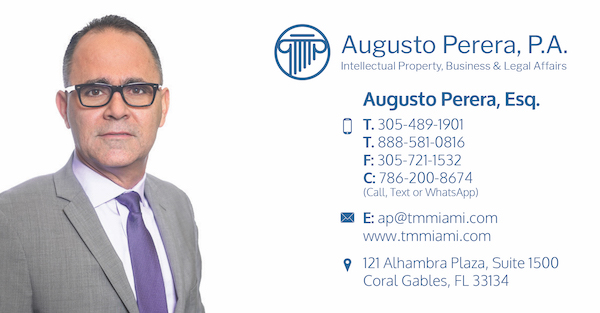Let’s say you are a Leo Messi fanatic, right Miami? Let’s say you want to create a website for a fans club based where enthusiastic followers or admirers of Messi get together to discuss, critique, post news, and share information about Messi. Let’s say you want to register the domain name miamimessi.com or variation thereof.
Would you be able to register the domain name?
Registering the domain name is easy, and more likely than not, unless someone else already registered before you did, you will be able to. That is because the domain name registration system is a first come, first served system and there is no review or analysis, by any of the private enterprises in charge of the system, as to whether the domain is confusingly similar to another domain or a trademark.
Would you be able to use it for your website?
It all depends on how aggressive the trademark owner is or your intended use.
Descriptive and nominative use of a trademark is called a fair use. The law permits fair use of a trademark because it neither implicates the source-identifying purpose of the mark nor implies sponsorship or endorsement of the product. Nominative fair use generally is permissible as long as: (1) the product or service in question is not readily identifiable without use of the trademark; (2) only so much of the mark as is reasonably necessary to identify the product or service is used; and (3) use of the mark does not suggest sponsorship or endorsement by the trademark owner.
The Internet Corporation for Assigned Names and Numbers (“ICANN”). ICANN created the Uniform Domain Name Dispute Resolution Policy (“UDRP”) to address disputes over the ownership of domain names and to provide an alternative to litigation.
Under the UDRP’s provisions. “If there is a dispute concerning a domain name, according to Paragraph 4(a) of the UDRP, the Complainant has the burden of proving to a WIPO panel that:
(i) The domain name at issue “is identical or confusingly similar to a trademark or service mark in which the Complainant has rights
(ii) the Respondent has “no rights or legitimate interests in respect of the domain name
(iii) the domain name at issue “has been registered and is being used in bad faith.”
However, if your goal is to buy many domain names of the famous mark to resell and make a profit that is considered cybersquatting. The Anticybersquatting Consumer Protection Act of 1999, Section 2(1) states “The registration, trafficking in, or use of a domain name that is identical to, confusingly similar to, or dilutive of a trademark or service mark of another that is distinctive at the time of registration of the domain name, without regard to the goods or services of the parties, with the bad-faith intent to profit from the goodwill of another’s mark”.
In our case Messi may pursue this under trademark dilution which refers to the use of a trademark or trade name in commerce that is sufficiently similar to a famous mark that by association it confuses or diminishes the public’s perception of the famous mark.
Dilution consists of two principal harms: blurring and tarnishment.
Dilution by blurring occurs when the distinctiveness of a famous mark is impaired by association with another similar mark or trade name.
Dilution by tarnishment occurs when the reputation of a famous mark is harmed through association with another similar mark or trade name.
In sum, if the trademark is vigilant and finds out you will be receiving a cease-and-desist communication or worse use the UDRP system to file a complaint for the transfer of the domain name, thus more likely than not you won’t be able to use the famous mark as part of your domain name.


